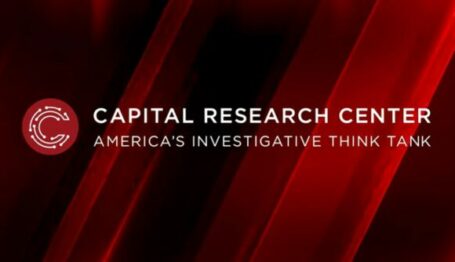Blog
Philanthropy–Is the Money Private or Public?
Is giving to the art museum as good as giving to the homeless shelter? Is it better to give a handout to a deserving individual or make a gift to an institution? Should you give to a local charity that directly helps individuals, or is that a band-aid and your money would be better directed to supporting a group that raises money for large-scale projects?
These are good arguments to have, and individuals will have different positions on each topic. The genius of American philanthropy and the source of Americans’ unique spirit of charity is that donors are free to reach their own conclusions about what is the best kind of charity—and to act on them.
I took an interest in the new Washington Legal Foundation publication (click here) mentioned in an earlier blog by Cory Andrews for a different reason. It tries to uncover why some people make bad arguments about charitable giving.
In the WLF publication Pennsylvania governor Dick Thornburgh, Hillsdale College president Larry Arnn, Adam Meyerson of the Philanthropy Roundtable and Randolph Foundation president Heather Higgins detect an increasing resort to a disturbing argument: It’s one that says government has a duty to promote charitable giving to specific causes that take action in a particular way. The causes are those that serve the “underprivileged.” And the best way to serve the underprivileged is for government to compel support for nonprofit groups that are led by minorities and that have as their mission the creation of more minority groups.
In his remarks Adam Meyerson points out that a bill (AB 624) was introduced in California a couple years ago that went so far as to require large foundations to disclose the race and gender of their board and staff members, as well as the race and gender of the board and staff of their grantees, and their vendors. The sponsors of the bill, who subsequently withdrew it, said they only wanted more transparency, but it was clear that their intent was to have state government push foundations to give more grants to some groups and not others. (Capital Research Center has published several papers on AB 624 and its principal sponsor, the Greenlining Institute.)
Heather Higgins locates the premise of this argument: it’s the belief that a donor’s philanthropic dollars are not his or hers to contribute. They are the public’s dollars. Because a foundation is tax-exempt, its contributions are subsidized by taxpayers, runs the argument. Thus the public has a “right to know” how foundations spend their grant dollars and a right to influence the selection of the grantees.
The idea that private charity is in fact public charity is not entirely unfounded. It receives support from the income tax code. Donors and charities make a bargain with the IRS: Gifts will be tax-deductible if they go to organizations that the IRS says provide a public benefit. Yet the IRS has always defined “public charity” and “public benefit” very broadly. Except for explicit political lobbying, self-dealing and outright fraud, there are few non-commercial activities that cannot achieve nonprofit status.
Hillsdale’s president, Larry Arnn, gets to the heart of the matter. Traditional charity is rooted in self-assertion. Americans are not afraid to take the initiative, he points out, with extensive quotes from Tocqueville, because they know they have an individual right to do the right thing. But modern bureaucratic government promotes collective action, defined by experts and authorized in the name of society. These ideas flourished in the Progressive era of the late 19th and early 20th centuries, a time that saw the professionalization of charity and “social science,” the expansion of government, and the ratification of the 16th Amendment, which authorized the federal income tax. Arnn quotes Woodrow Wilson who noted approvingly,
“The thesis of the state socialist is that no line can be drawn between public and private affairs which the State cannot cross at will; that omnipotence of legislation is the first postulate of all just political theory…” (“Socialism and Democracy,” 1887)
This idea, applied to philanthropy, clarifies the bad argument that the tax deduction justifies letting politicians influence the goals of private charitable giving



